Written by Digital Marketing Executive Brendan Wolmarans, this guide demystifies the complicated nature of schema markup, highlighting its benefits and best practices for implementation, ensuring your website stands out in the competitive digital landscape.
Unleash the full potential of your website with schema markup (or structured data)! This game-changing tool doesn’t just boost your SEO; it transforms how search engines interpret and display your content, making it more attractive and engaging to users.
What is structured data? (Speaking Google’s language)
Search engines use advanced algorithms to help them crawl, identify, and categorise (rank) your website’s content. They don’t have the same visual sense and intuition that humans do, therefore we must use schema markup to help search engines understand the context of our website’s content.
Schema markup is a type of code added to a website that structures and contextualises your site’s content for search engines, whether it be website copy or images.
In the below example of a recipe search, Google has identified and is displaying an image, ratings, number of reviews, estimated cooking time, and ingredients in the search bar. It has gathered this information by reading and understanding the schema markup within the site.
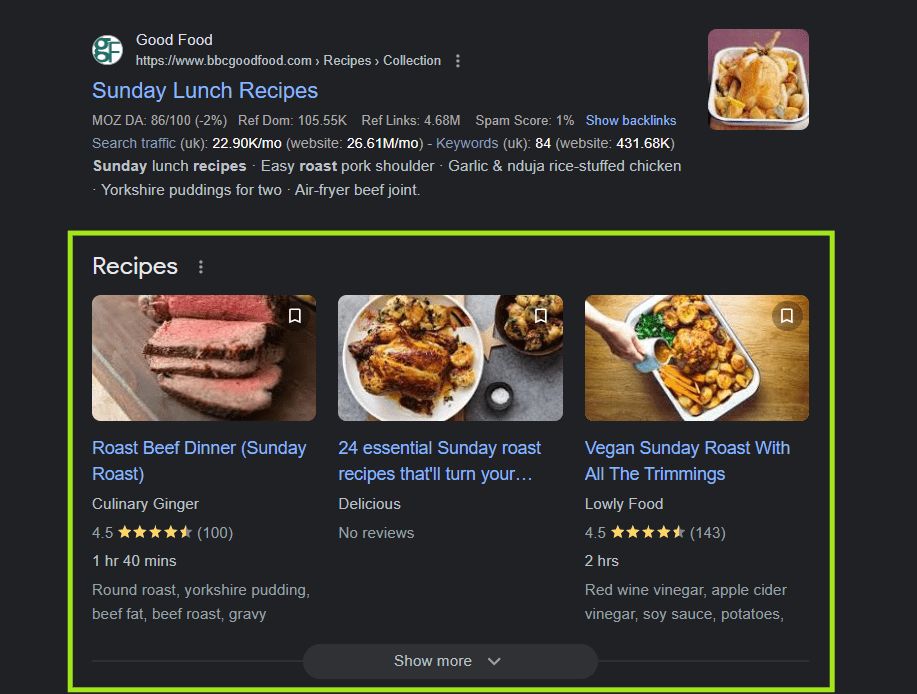
Why is schema markup important for SEO?
Schema markup, while not a confirmed Google ranking factor, plays an important role in improving user engagement and conversion rates by providing more detailed information about your products and services to search engines and allowing them to display your site’s content in a richer, more engaging format. This boosts visibility in search results and should (in theory) attract more traffic to your website.
Different types of schema markup.
There are various ways of structuring your data; from product categories and industries, to reviews and event times. Take a look at the 35 different schema types that Google supports here.
Example 1: Local Business Markup
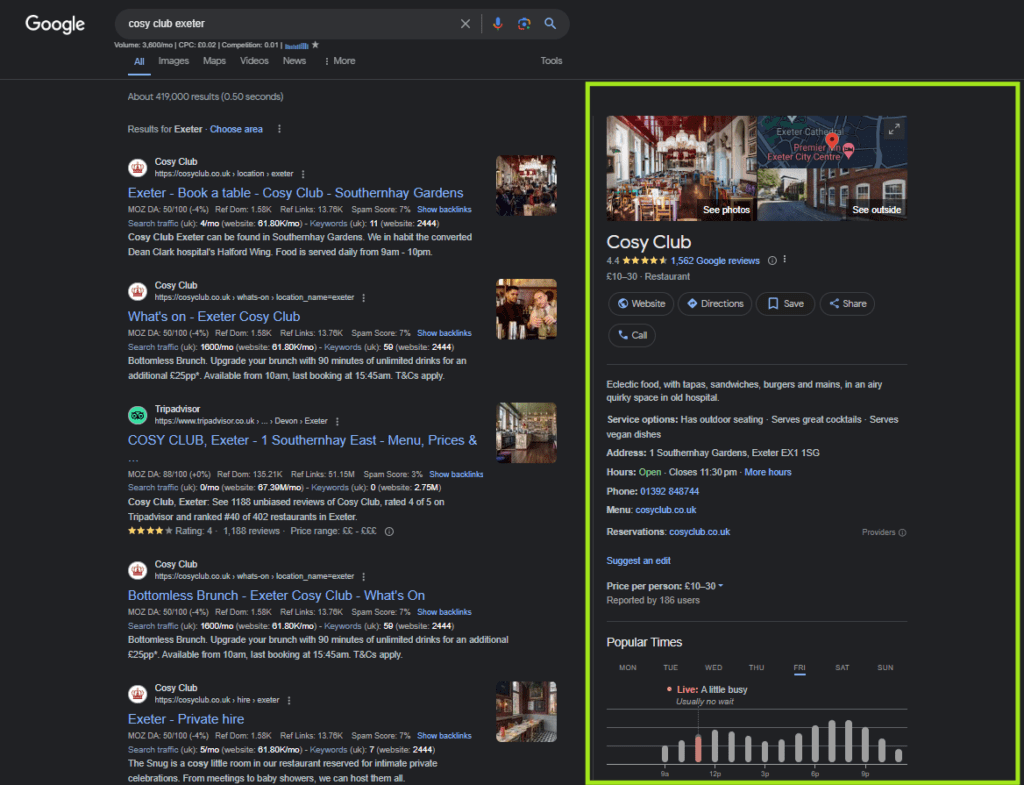
The local business markup gives Google details about a local business, like its name, address, phone number, operating hours, reviews, plus more. This data helps Google generate a local knowledge panel that pops up when someone searches for the business name. This panel makes it easier for potential customers to find and learn more about the business.
Example 2: Article Markup
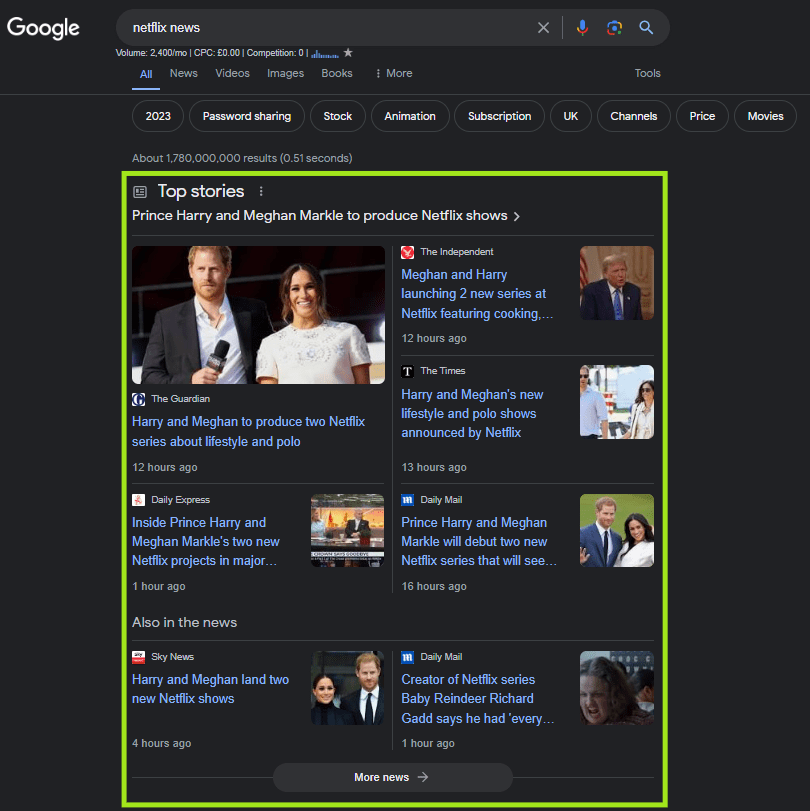
The article markup helps Google understand the specifics of an article’s content, including its title, featured image, author, and the date it was published. By providing this detailed information, Google can display it directly within search results, improving visibility and promoting engagement for users searching for that content. This type of markup is especially useful for content like news articles and blog entries.
C&W Top Tip: Use this tool to discover different schema types and the code needed to insert into your site.
Ways of structuring data for Google.
1. JSON-LD
This method is JavaScript-based, using JSON syntax to organize data in name-value pairs, making it a preferred and straight forward method for developers. Google favours this method.
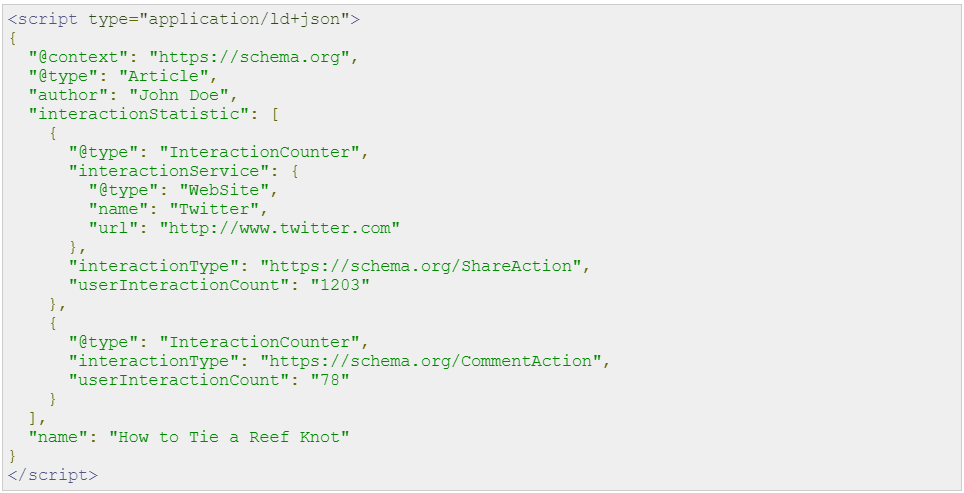
This is an example of JSON-LD code taken from Schema.org.
2. Microdata
This method integrates directly into HTML tags and attributes. While it’s relatively easy to understand for those familiar with HTML, it tends to use longer code compared to JSON-LD, making it less preferred.
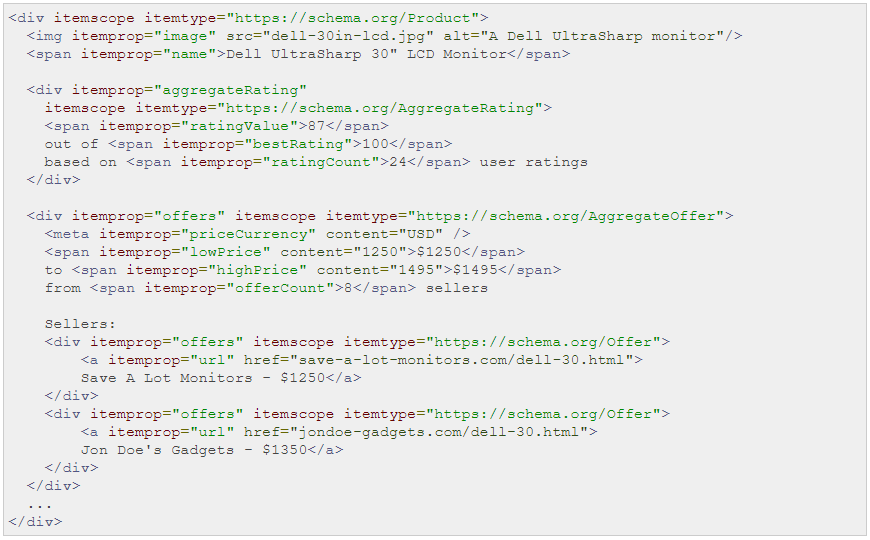
This is an example of Microdata code taken from Schema.org.
3. RDFa
This code shares similarities with Microdata, utilizing HTML tags and attributes, but it is known for being quite long and drawn out.
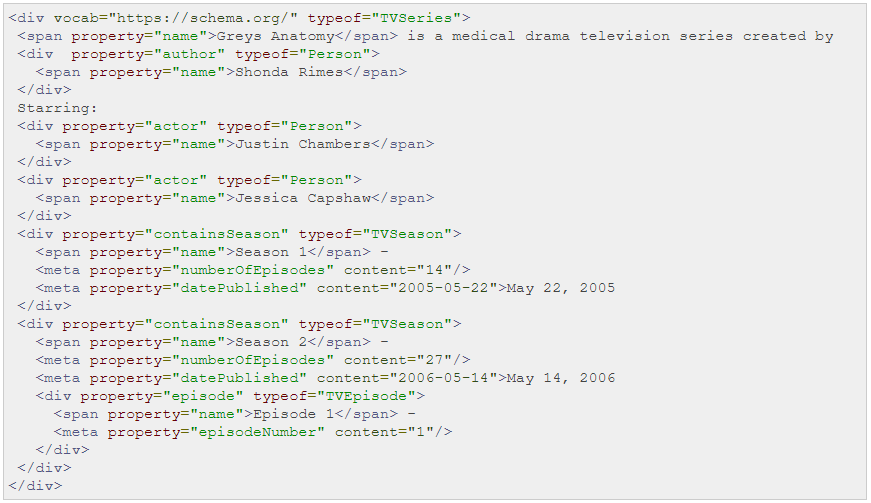
This example of RDFa code taken from Schema.org.
Overall, JSON-LD stands out as the simpler and preferred choice for implementing schema markup due to its efficiency and Google’s preference for this format.
Schema Markup best practices.
When integrating schema into your website, it’s important to follow best practices to enhance the Search Engine’s ability to comprehend and present content in the SERPs.
Begin by choosing an appropriate schema type that reflects your content—such as “Article” for written content, “Product” for items for sale, and “Recipe” for culinary guides. Google recommends the JSON-LD format for its ease of use and maintenance, making it the preferred choice over formats like Microdata or RDFa. Aim to provide as much relevant detail as possible within your schema markup; a thorough approach helps Google more accurately understand and display your content.
It’s also important to utilise tools like Google’s Rich Result Test to ensure your markup is correctly implemented and error-free. Keeping your schema markup up to date, especially when content changes, ensures ongoing accuracy. Avoid misleading or spammy practices, such as adding irrelevant markup or attempting to manipulate search rankings.
Lastly, staying informed about Google’s updates to schema markup guidelines is crucial for maintaining effectiveness and compliance, keeping your content well-represented and steadfast in search results.
The internet is full of white noise. Effective SEO is essential in ensuring your audience can find you and your message is heard. To learn more about SEO and the services we provide, don’t hesitate to email us or call the team on 01392 666291.





